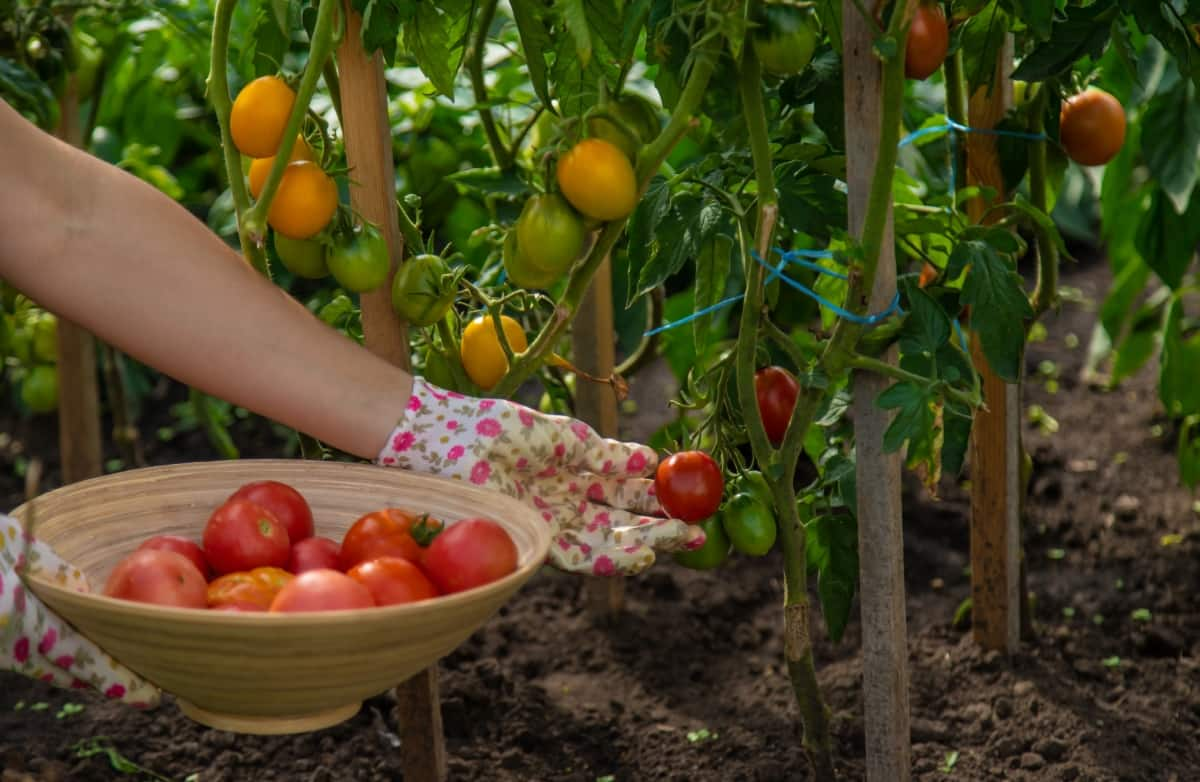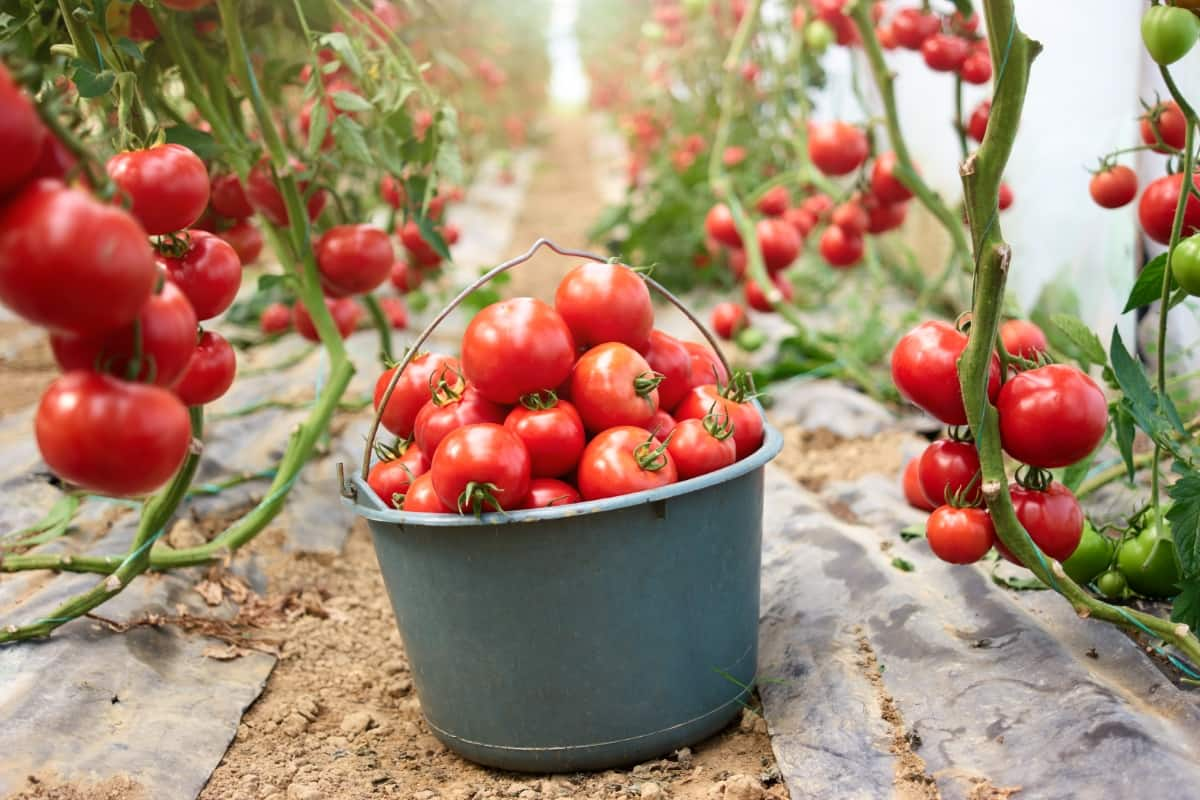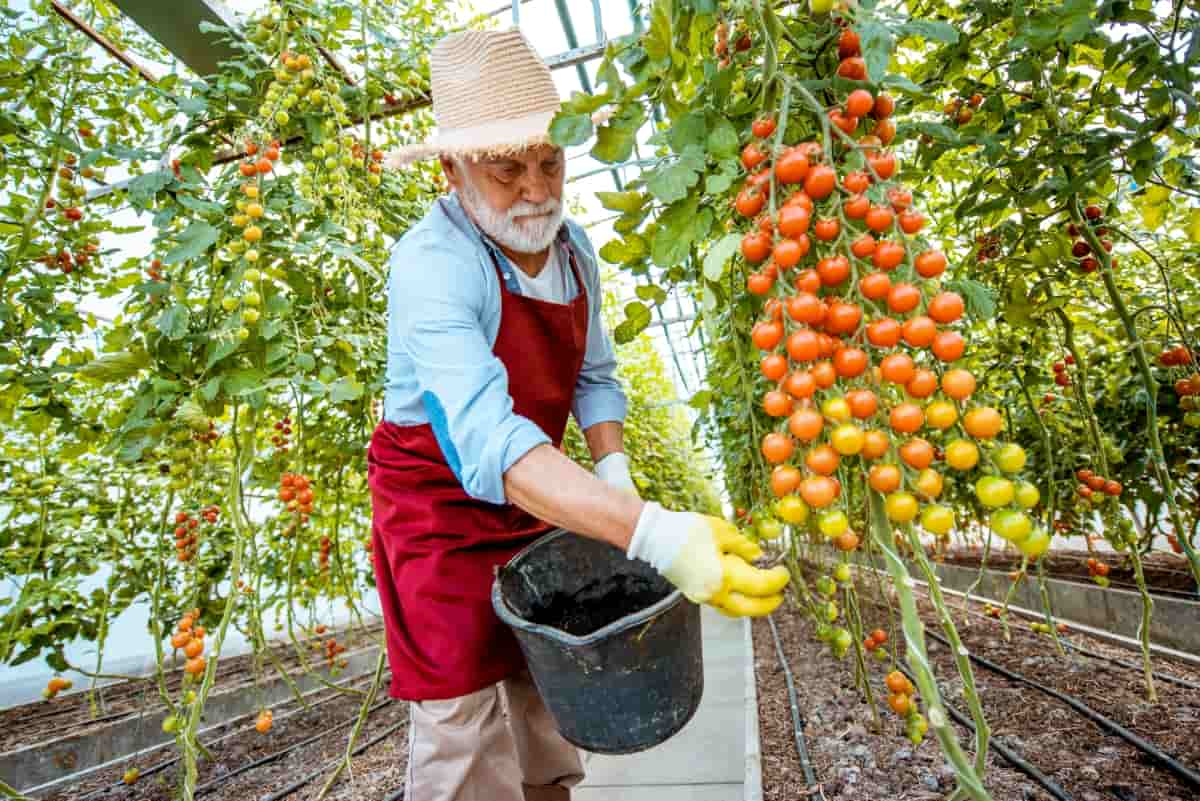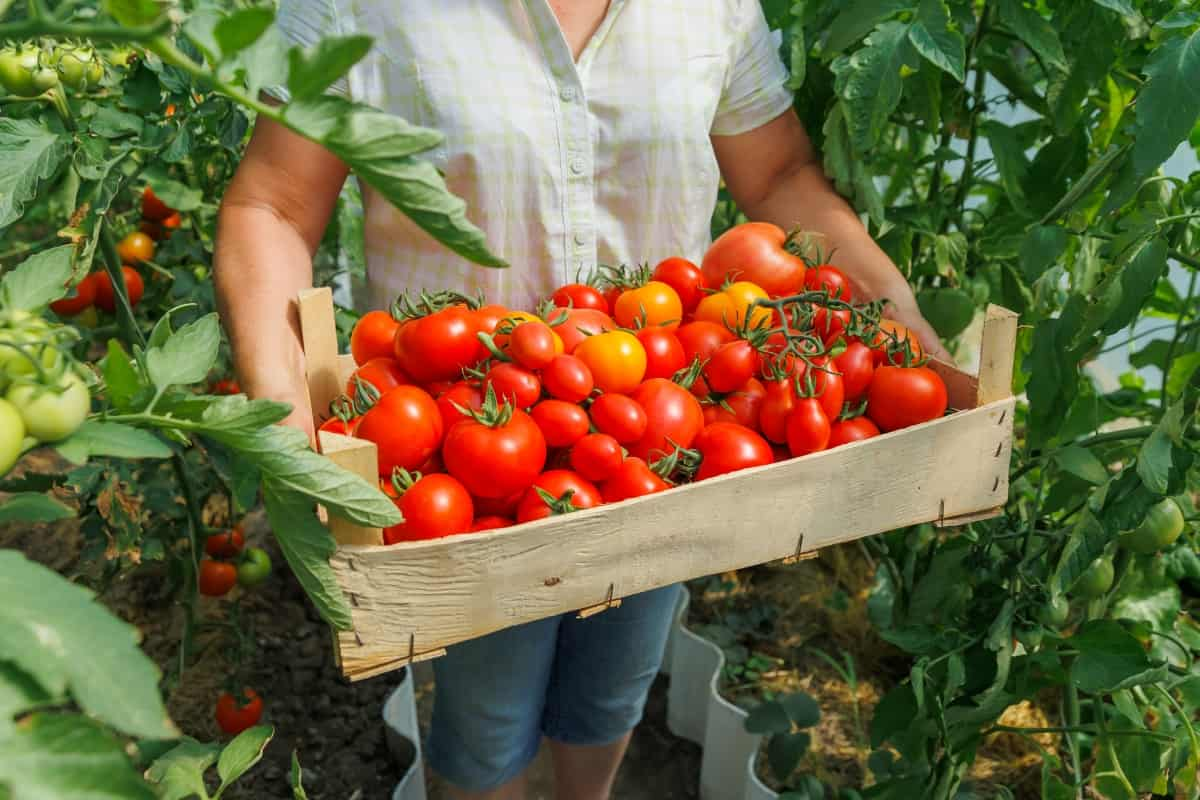Tomatoes are one of the most popular and rewarding crops to grow in your garden. They are versatile, delicious and nutritious. However, they also require a lot of care and attention to produce healthy and abundant fruits. One of the most important aspects of tomato care is fertilizing. Fertilizing tomatoes can make a huge difference in the size, yield, and taste of your fruits. But how do you choose the best fertilizer for your tomatoes?

What are the essential nutrients that tomatoes need? How often and how much should you fertilize your tomatoes? We will also review 8 of the best fertilizers for tomatoes available on the market based on their NPK ratio, other essential nutrients, longevity, effectiveness, ease of use, and value.
What are the Essential Nutrients that Tomatoes Need?
Tomatoes need three primary macronutrients: nitrogen, phosphorus, and potassium. The NPK ratio on fertilizer labels usually represents these. Nitrogen promotes leaf and stem growth, phosphorus supports root development and flowering, and potassium enhances fruit quality and disease resistance. Tomatoes also need secondary macronutrients such as calcium, magnesium, and sulfur.
Calcium prevents blossom end rot, a common disorder that causes black spots on the bottom of the fruits. Magnesium is a component of chlorophyll, which gives green color and helps them photosynthesize. Sulfur improves the flavor and aroma of tomatoes by increasing their sugar and acid content. In addition to these macronutrients, tomatoes also need micronutrients such as boron, copper, iron, manganese, molybdenum, and zinc.
How to Choose the Best Fertilizer for Your Tomatoes?
The best fertilizer for your tomatoes depends on several factors, such as the type of soil you have, the stage of growth of your plants, the variety of tomatoes you are growing, and your personal preference. However, some general guidelines can help you make an informed decision.
The best NPK ratio for tomatoes is between 5-10-5 and 8-32-16. A higher phosphorus and potassium level than nitrogen is recommended because it encourages more fruit production than vegetative growth. However, too much phosphorus can interfere with the uptake of other nutrients, such as iron and zinc, so avoid using fertilizers with extremely high phosphorus levels.
The best fertilizer for your tomatoes should also include calcium, magnesium, as well as other trace elements. These can be found in organic or synthetic fertilizers, or you can supplement them with other products such as lime, Epsom salt, or gypsum. The best fertilizer for your tomatoes should be applied at different times depending on the stage of growth of your plants. It would help if you started fertilizing your tomatoes when you transplant them into the garden or containers, using a balanced fertilizer such as 5-5-5 or 5-10-5.
It would help if you then fertilized them again when they start flowering, using a fertilizer with a higher phosphorus and potassium level, such as 8-32-16 or 6-24-24. It would help if you continued fertilizing them every two to four weeks until they stop producing fruits. Different types of fertilizers have different methods of application, such as granular, liquid, or spikes.
8 Best Fertilizers to Increase Tomato Fruit Size
Black Kow Cow Manure 0.5-0.5-0.5
Black Kow Cow Manure is an organic fertilizer that enhances soil texture and fertility by containing nitrogen, phosphorus, potassium, and beneficial microbes. It can be used in planters, in-ground, or raised beds and is suitable for various plants, including tomatoes. The 50-pound bag is a bulk product, but it is a heavy bag and has low nutrient content. It is suitable for various plants but has a low nutrient content.
In case you missed it: Everything You Need to Know About Tomato Plant Spacing: Optimal Tomato Plant Distance

Burpee Granular Plant Food 10-10-10
Burpee Granular Plant Food is a synthetic fertilizer that provides tomatoes with a balanced dose of nitrogen, phosphorus, potassium, calcium, magnesium, sulfur, and other trace elements. It can be applied every two weeks throughout the growing season and easy to apply. However, it may burn plants if applied too much or too close and may not be suitable for organic gardening. It is easy to apply and affordable.
Espoma Organic Tomato-Tone Vegetable Food 3-4-6
Espoma Organic Tomato-Tone Vegetable Food is an organic fertilizer that is specially formulated for tomatoes and other vegetables. It contains nitrogen, phosphorus, and potassium, calcium, magnesium, and sulfur. It also has beneficial bacteria that enhance the biological activity in your soil. It is a granular product that can be mixed into the soil or used as a side dressing. It can be used every two weeks throughout the growing season.
Pro’s
- Specially formulated for tomatoes and other vegetables
- It contains calcium, magnesium, and sulfur
- Has beneficial bacteria
- Organic
Con’s
- May attract pests or animals
- It may have a strong odor
Miracle-Gro LiquaFeed Plant Food Refills 12-4-8
Miracle-Gro LiquaFeed Plant Food Refills are synthetic fertilizers that provide a high dose of nitrogen, phosphorus, and potassium to your tomatoes. They also contain other trace elements. They are liquid products that come in bottles that can be attached to a hose-end sprayer or a watering can. They can be applied every one to two weeks throughout the growing season.
Pro’s
- Provides a high dose of NPK
- Contains other trace elements
- Easy to apply
- Long-lasting
Con’s
- It may burn plants if applied too much or too often
- It may not be suitable for organic gardening
In case you missed it: Using Neem Oil on Tomato Plants: A Step-By-Step Guide to Natural Way to Control Tomato Pests

Jobe’s Organics Tomato Fertilizer Spikes 2-7-4
Jobe’s Organics Tomato Fertilizer Spikes are organic fertilizers that provide a moderate dose of nitrogen, phosphorus, and potassium to your tomatoes. They also contain calcium, magnesium, and sulfur, as well as beneficial microbes that improve the soil quality. They are solid products that come in spikes that can be inserted into the soil near the roots of your plants. They can be applied every six to eight weeks throughout the growing season.
Pro’s
- Provides a moderate dose of NPK
- It contains calcium, magnesium, and sulfur
- Has beneficial microbes
- Organic
Con’s
- May not dissolve well in dry or compacted soil
- It may not provide enough nutrients for heavy feeders
Osmocote Smart-Release Plant Food 14-14-14
Osmocote Smart-Release Plant Food is a synthetic fertilizer that provides a balanced dose of nitrogen, phosphorus, and potassium to your tomatoes. It also contains other trace elements. It is a granular product that has a smart-release technology that delivers nutrients gradually over four months. It can be mixed into the soil or used as a top dressing. It can be applied once at the beginning of the growing season.
Pro’s
- Provides a balanced dose of NPK
- Contains other trace elements
- Has smart-release technology
- Long-lasting
Con’s
- It may not provide enough nutrients for heavy feeders
- It may not be suitable for organic gardening
Miracle-Gro Shake ‘n Feed All Purpose Plant Food 12-4-8
Miracle-Gro Shake ‘n Feed All Purpose Plant Food is a synthetic fertilizer that provides a high dose of nitrogen, phosphorus, potassium to your tomatoes. It also contains calcium, magnesium, and sulfur, as well as other trace elements. It is a granular product that can be shaken around the base of your plants and watered in. It can be applied every three months throughout the growing season.
Pro’s
- Provides a high dose of NPK
- It contains calcium, magnesium, and sulfur
- Easy to apply
- Long-lasting
Con’s
- It may burn plants if applied too much or too close
- It may not be suitable for organic gardening.
In case you missed it: How to Control Leaf Miner in Tomato with Natural, Organic, Chemical, and Homemade Spray

Conclusion
The top eight fertilizers significantly enhance tomato size, yield, and flavor. They provide balanced nutrients, promoting robust growth and fruit development. These fertilizers ensure optimal plant health, leading to larger, tastier tomatoes with increased yields, catering to both commercial and home gardening needs.
- Feed Your Flock for Less: Top 10 Tips to Save on Chicken Feed
- Ultimate Guide to Ossabaw Island Hog: Breeding, Raising, Diet, and Care
- Hatching Answers: The Top 10 Reasons Your Chickens Aren’t Laying Eggs
- Eggs and Economics: Breaking Down the Cost of Raising Backyard Chickens
- Defend Your Greens: Proven Methods to Keep Iguanas Out of Your Garden
- Ultimate Guide to Cinnamon Queen Chicken: A Comprehensive Guide for Beginners
- Ultimate Guide to California Tan Chicken: Breeding, Raising, Diet, Egg-Production and Care
- Ultimate Guide to Marsh Daisy Chicken: Breeding, Raising, Diet, and Care
- 10 Types of Chicken Farming Businesses You Can Start for Profits